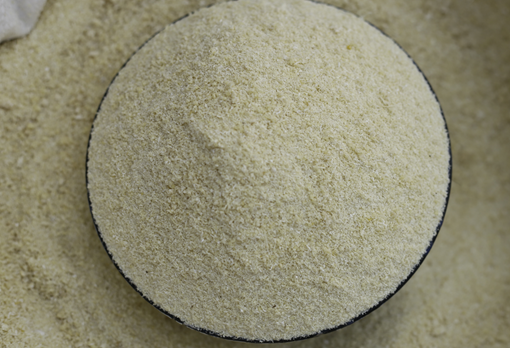_Akeem Akilo_
The Ijebus’ once-celebrated top staple food, garri, has vanished, leaving a trail of disappointment and scarcity in its wake. Among our other traditional foods, garri is so popular and entrenched that this staple, once a mainstay in every household, has become a rare commodity, scarce in most homes. The shift from abundance to scarcity is both disgusting and painful, a stark reminder of the erosion of our cultural heritage.
Garri, a symbol of Ijebu rich tradition and hospitality, has been a part of our identity for generations. Its disappearance not only affects our culinary practices but also our sense of community and shared values. The memories of garri-filled bowls and lively gatherings now seem like a distant past, a nostalgia that pains our hearts.
The scarcity of garri, koko garri, and lebu is a cultural and economic loss for the Ijebus. We must act to preserve our traditions and ensure food availability. By addressing the issues plaguing cassava cultivation, we can revive our heritage and restore the abundance of our beloved gari.
The scarcity of garri is a call to action, urging us to reclaim our heritage and revive our traditions. We must explore solutions to restore gari’s availability, support local farmers, and preserve our cultural legacy.
My microscopic research findings reveal that cassava usage has transcended local boundaries, reaching international markets and diversifying its applications. Garri, a popular cassava derivative, is now exported abroad, catering to global demand. Beyond its traditional use as a food staple, cassava has been harnessed for ethanol production and flour milling, expanding its value chain.
Garri has expanded beyond traditional popular choice of making eba with garri, by pouring it into boiled water, and transforming it into solid food. Garri has gone beyond taken with fresh water – alongside groundnut, beancake like moinmoin and akara, or sprinkled on beans.
However, Fulani herdsmen’s open grazing poses a significant threat to garri availability. Cows have destroyed farmlands, including cassava plants, driving local farmers away. The solution lies in the government banning open grazing, safeguarding our heritage, and food security.
The scarcity of garri has reached alarming proportions. The major culprit behind this crisis is open grazing, which has led to the destruction of farmlands and displacement of farmers. To address this issue, the government must take decisive action, deploying the same political will used to remove petrol subsidies to ban open grazing and support our farmers.
The government’s intervention is crucial to revive the glory of garri, safeguard our cultural legacy, and ensure food security. By banning open grazing, farmers will be able to cultivate cassava and other crops without fear of destruction, increasing production and availability.
Moreover, supporting farmers through initiatives like subsidies, credit facilities, and extension services will enhance their productivity and efficiency. This will not only revitalize the garri industry but also stimulate economic growth and development.
The time for action is now. The government must prioritize the interests of farmers and consumers and take bold steps to restore the abundance of garri, our beloved staple food. Together, we can revive our cultural heritage and ensure a food-secure future.
*Comrade Akeem Temitope Akilo*
_Ishowe,_
_Atan/Imuku Ward 1,_
_Ijebu North/East L.G.A._

















